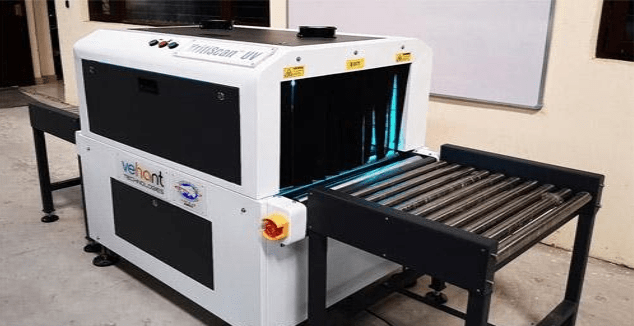UV light has come up to be a great choice among several effective solutions to sanitize the surfaces from SARS-CoV-2 virus. Here’s how it works.
Does UV Light in Disinfection Devices Kill the Coronavirus?
UV light is considered to be the most popular medium to detect and fight against COVID-19. UV light disinfection is not a new concept. It has been around for around four decades to clean air and water, according to the International Ultraviolet Association. These days, UV light is used in a lot of consumer goods to disinfect objects like UV-emitting cases to disinfect a smartphone and UV light based self-cleaning water bottles. There is nothing we can say with confidence in the wake of the Coronavirus outbreak. UV light devices have their own risks when it comes to use directly on skin.
What type of UV Light is Effective against Coronavirus?
Usually, UV light comes directly from the sun rays. But advancement of technology has made it possible to create UV light like tanning beds and the most anticipated UV disinfection lamps. UV light is categorized into three types – UV-A, UV-B and UV-C.
UV-A and UV-B lights are harmful to your skin as they cause premature skin aging and sunburns. Direct exposure to UV-A and UV-B causes skin cancer. On the other side, UV-C consists of the most energy and is the most dangerous of all of the above types. Luckily, it is absorbed in our atmosphere and it doesn’t reach the surface.
Artificial UV-C light is also available. For example, it is used in UV sanitizers which are recently claimed by the companies to be effective against Coronavirus. There is a possibility that it is true. UV light has been effective to clean up water and surface for decades. UV-C light is very strong to destroy the RNA or DNA of bacteria or viruses. But there is still a lack of proper evidence to prove that Coronavirus can be killed with sun exposure. Hence, it doesn’t mean you can avoid catching the virus by going out in the sun.
Is UV Light Effective against COVID-19?
According to the scientific evidence available that several types of viruses can be killed by UV light, there are chances that it can kill Coronavirus too. It has been shown to kill different other types of coronaviruses. So, there are chances that it might work on SARS-CoV2, according to the official website of the National Academies of Sciences, Engineering and Medicine. But here is a catch. UV light is effective only on surfaces and objects as it poses serious damages to your skin, the NASEM website further suggests.
The UV light has come up as a strong contender in order to look for the best solution to sanitize vast spaces. UV-C light has the wavelength of over 200 to 280 nm which is quite hazardous for cell tissue. Sunlight also contains the same wavelength but the ozone layer filters the same. On the other side, with 320 to 400 nm, UV-A and UV-B lights are considered to be less harmful. But these rays can also cause sunburn.
Meanwhile, UV-C light of 254 nm can be helpful to sanitize objects. But long-term exposure may lead to skin cancer. According to a research, UV-C light worked really well to make changes in the cellular part of SARS-CoV-1, which is also a type of Coronavirus which was responsible for causing SARS. UV-C light exposure for at least 10 minutes in the same wavelength (254 nm) can kill the virus, as compared to other wavelengths.
Is it effective to disinfect luggage?
The UV based disinfection devices have been proposed by the Airports Authority of India to disinfect luggage when flights resume at Chennai airport. This option is being considered by the authorities and a lot of companies have approached the airport authorities already. A company has to get certification issued by the certified government lab, which indicates that the tunnel is proven to kill viruses on the luggage surface.
The authorities said that a certification and validation by health authorities is yet to be given. They would try other options if a firm fails to have a certification. They can also spray disinfectants but this procedure is not too fast.
According to the sources, there have been concerns from the CISF personnel and airport staff about touching the luggage. This is even after having hand sanitizers and wearing gloves.
